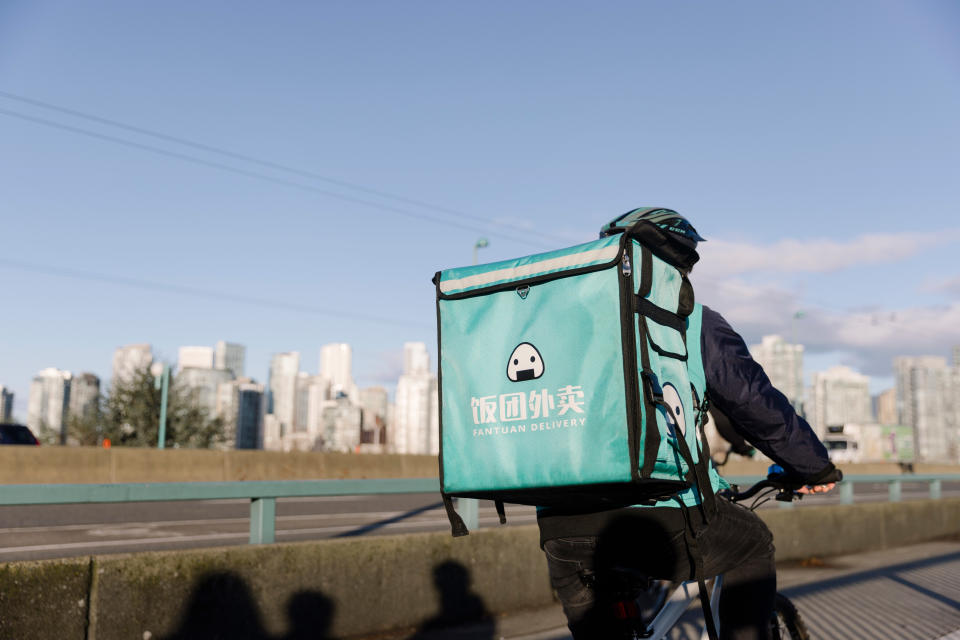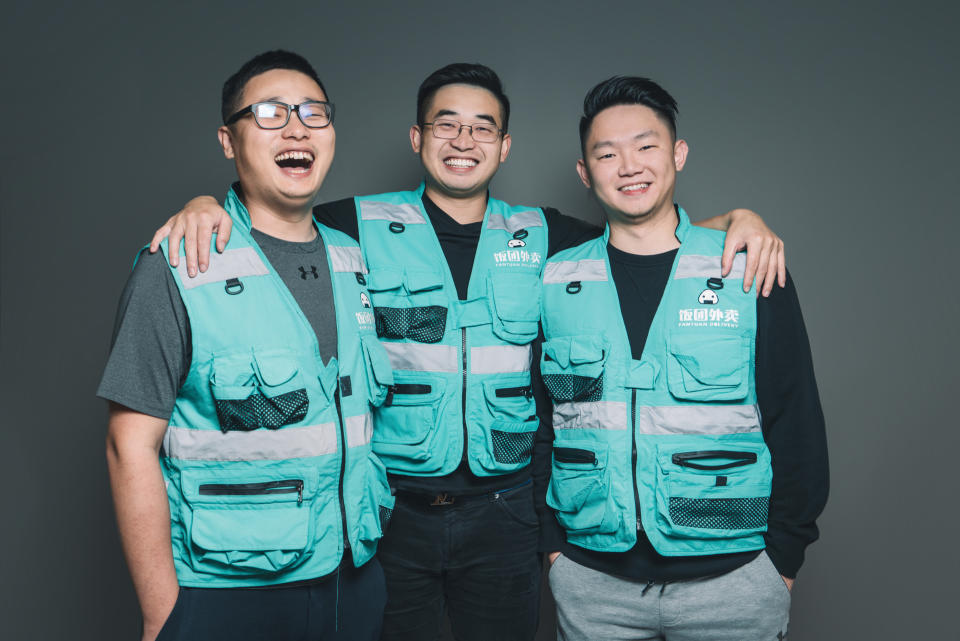Vancouver's Fantuan raises $40M to deliver real Asian food at your doorstep
For those who move abroad from China, one thing they miss dearly is the convenience of food delivery apps. Fantuan, a Vancouver-based company, has been working on replicating the experience of Chinese food delivery platforms in the West for the past nine years. Recently, it raised some fresh capital to further advance its goal -- bringing authentic Asian food to people around the world.
Fantuan, which means rice balls in Chinese, raised $40 million in a Series C funding round led by Celtic House Asia, a venture capital firm that invests in first-generation immigrants, and GrubMarket, the food supply chain upstart that surpassed $1 billion in valuation in 2021.
Other participating investors include Vision Plus, a venture capital firm established by Alibaba's newly appointed chief executive officer Eddie Wu, and boutique private equity firm JSD Capital. The company declined to disclose its valuation after the raise.
In addition to institutional investors, Fantuan also raised capital from several powerbrokers in China's retail tech space, including the co-founders of Ele.me, a food delivery pioneer gobbled up by Alibaba in 2018; Bianlifeng, an unmanned convenience store chain; Qunar, a GGV-backed travel booking site acquired by its bigger rival Ctrip; and Dianping, the more powerful Chinese counterpart of Yelp owned by food delivery giant Meituan.
Impressed by the surging popularity of food delivery apps in China, Randy Wu established Fantuan in 2014 when he was studying economics at Simon Fraser University. Running the business himself, Wu wore several hats at the beginning, including personally delivering food across Vancouver before dropping out of college to work full-time on what he believed was his chance at "copy from China." Specifically, Meituan was his benchmark.
Wu was soon joined by his co-founder Yaofei Feng, whom he had met online while playing Dota. Inspired by Wu's entrepreneurial endeavor, Feng took a leap of faith, left his job as a software engineer at Amazon in Seattle, and moved to Vancouver.

Image credits: Fantuan
The founders were betting on the growing demand for high-quality Asian food in Western countries as millions of Chinese moved overseas. As of 2020, there were some 10 million international migrants of Chinese origin, according to a report by the International Organization for Migration.
"Food from home is a kind of spiritual refuge when you are living abroad," said Wu in an interview with TechCrunch. "I still vividly remember the first Chinese meal I had three months after moving to Saskatchewan, where Chinese food was so scarce."
Fantuan's ambition goes beyond delivery. Taking a leaf out of Meituan's playbook, the all-in-one platform for local services in China, the company wants to eventually become the go-to destination where overseas Chinese can discover and access all forms of leisure activities.
Its tie-up with GrubMarket is also reminiscent of Meituan's vertical expansion where the food delivery platform hooks restaurants up with ingredient suppliers. Connecting farmers with customers like Whole Foods and Costco, GrubMarket might see Fantuan as a way to reach mum-and-pop restaurants down the road.
Two years after its founding, Fantuan became a top Chinese food delivery platform in Vancouver and achieved net profitability. It stayed profitable for another five years until it started expanding aggressively to the U.S. during the COVID-19 pandemic. Its annual revenue is projected to be close to $100 million this year.
Chinese food is tricky for instant delivery, Wu observed. The cooking process is often lengthy, and unlike cuisine-agnostic platforms, focusing on just one category results in a lower density of restaurants, leading to longer delivery time. Wu, however, claimed that Fantuan managed to achieve an average delivery time of 40 minutes spanning cities like Vancouver, Toronto, London, San Francisco and Sydney.

Image credits: Fantuan
Delivery time is affected by the availability of drivers. In an expensive city like San Francisco, recruitment efforts can fall short as Fantuan prefers Chinese-speaking drivers who can communicate with immigrant restaurant owners. Wu said drivers are drawn to Fantuan because the average order value from Chinese restaurants is almost "double" compared to mainstream food delivery platforms, which translates to increased tips.
As of today, Fantuan's user retention rate is around 90% after five orders within 24 months, according to Wu. Out of its two million registered accounts, 1.2 million are "active" users.
Wu believes one of Fantuan's key strengths is its ability to onboard a diverse range of authentic Chinese and other Asian restaurants. The platform adopts the on-the-ground sales recipe commonly used by Chinese tech firms that work on digitizing traditional retail, which involves physically visiting customers and building in-person relationships.
"Our business development specialists would each manage around 80 restaurants and pay frequent visits to these customers, teaching them tips like how to do marketing and how to pack more efficiently for delivery," said Wu.
Today, Fantuan employs around 500 people around the world. Yinfeng Lu, a former sales executive at Meituan, joined as chief operating officer earlier this year.
The story was updated on December 5, 2023, to reflect that Fantuan delivers all kinds of Asian food, not just Chinese.

